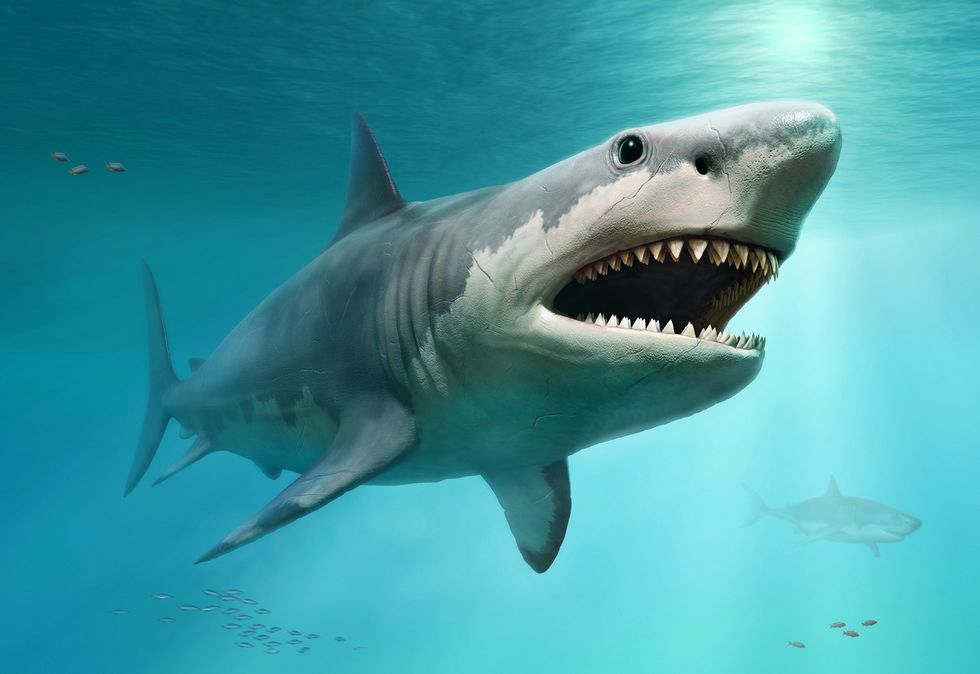Harry Fletcher
Jul 04, 2023
New study suggests ancient megalodon could eat whole wales in a few …
content.jwplatform.com
Scientists believe they have discovered the cause of the megalodon's extinction – and no, it’s not Jason Statham.
Experts have been conducting research on fossils of teeth from the biggest species of shark the world has ever seen, which went extinct around 3.6 million years ago and measured at least 15 metres long.
Research published in the journal Proceedings of the National Academy of Sciences explains that the animal was actually partially warm-blooded.
Unlike most cold-blood sharks, the body temperature is thought to have been around 27 degrees. The temperature is higher than the sea temperatures around the time.
Sign up to our free Indy100 weekly newsletter
Study co author Robert Eagle, who is professor of marine science and geobiology at UCLA, said [via CNN]: “We found that O. megalodon had body temperatures significantly elevated compared to other sharks, consistent with it having a degree of internal heat production as modern warm-blooded (endothermic) animals do.”
They were able to prove that the animals were warm-blooded by analysing how carbon-13 and oxygen-18 isotopes were closely bonded together in the fossilised teeth.

Senior study author Kenshu Shimada is a paleobiologist at DePaul University in Chicago, who said: “A large body promotes efficiency in prey capture with wider spatial coverage, but it requires a lot of energy to maintain.
“We know that Megalodon had gigantic cutting teeth used for feeding on marine mammals, such as cetaceans and pinnipeds, based on the fossil record. The new study is consistent with the idea that the evolution of warm-bloodedness was a gateway for the gigantism in Megalodon to keep up with the high metabolic demand.”
The fact it was warm-blooded means that regulating body temperature could have been the cause of its eventual demise. The Earth was cooling when the animal went extinct, which could have been a critical factor.
“The fact that Megalodon disappeared suggests the likely vulnerability of being warm-blooded because warm-bloodedness requires constant food intake to sustain high metabolism,” Shimada said.
“Possibly, there was a shift in the marine ecosystem due to the climatic cooling,” causing the sea level to drop, altering the habitats of the populations of the types of food megalodon fed on such as marine mammals and leading to its extinction.
“One of the big implications for this work is that it highlights the vulnerability of large apex predators, such the modern great white shark, to climate change given similarities in their biology with megalodon,” said lead study author Michael Griffiths, professor of environmental science, geochemist and paleoclimatologist at William Paterson University.
Have your say in our news democracy. Click the upvote icon at the top of the page to help raise this article through the indy100 rankings.
Top 100
The Conversation (0)














